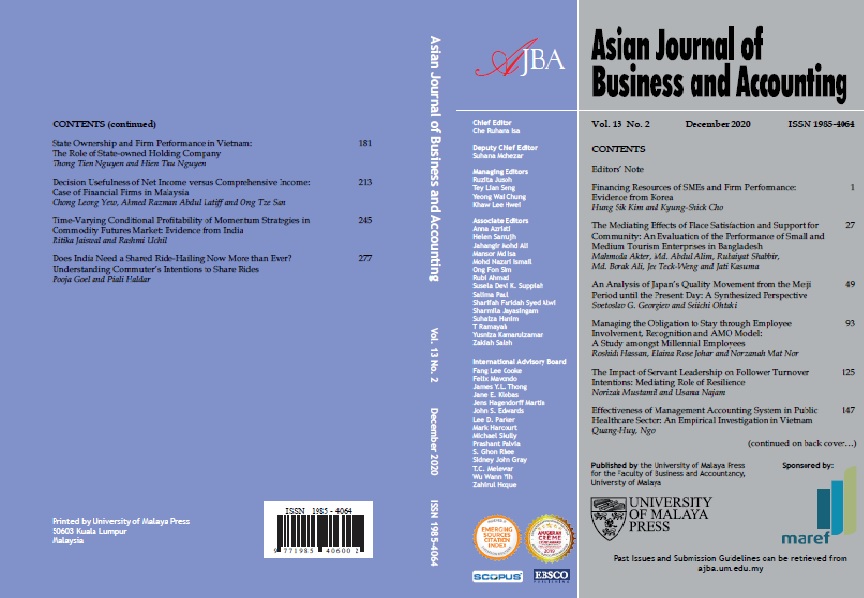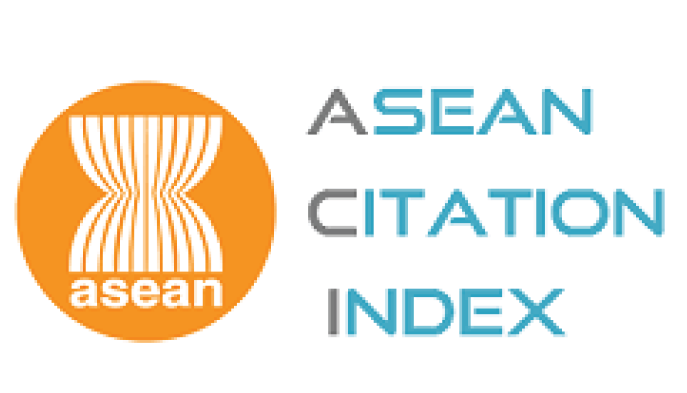Financing Resources of SMEs and Firm Performance: Evidence from Korea
DOI:
https://doi.org/10.22452/ajba.vol13no2.1Keywords:
Financing resources, SMEs, Firm Performance, EfficiencyAbstract
Manuscript type: Research paper
Research aims: This study investigates the effects of financing resources on firm performance and efficiency among the SMEs of Korea. It also examines the relevance of various factors between the sources of financing and corporate performance and efficiency.
Design/Methodology/Approach: Data taken for empirical analysis are those from 2011 to 2016. Samples are taken from the Korea Composite Stock Price Index (KOSPI) and Korea Securities Dealers Association (KOSDAQ) companies listed on the Korea Exchange. To examine the relationship between financing resources and firm performances, we employ a structural equation model (path model) derived from AMOS 24 of the SPSS.
Research findings: Results show that SME’s internal finance and institutional finance have a positive effect on firm performance but other capitals have a negative effect on firm performance. Internal finance and corporate credit contribute to better efficiency whereas institutional finance has a significant negative impact on efficiency. These findings suggest that there are differences between financing resources and firm performance. Results also show that institutional finance has a negative impact on growth while other capitals have a positive effect on growth.
Theoretical contribution/Originality: This study is unlike past studies; it examines the impact of financing sources on performance.The outcome derived adds to the existing literature on SMEs’ preferences towards various financing sources. The samples of this study comprise companies listed on the Korean Stock Exchange. A few studies have examined the relationship between financing resources of Korean SMEs and organisational performance in detail, thereby highlighting that the SMEs’ financing behaviour in Korea is different from other countries. The results of this study can be applied to other countries which may be similar to Korea.
Practitioner/Policy implication: Our findings offer insights which can help investors, businessmen, and policymakers who are interested in the Korean Stock market to make better decisions. The results drawn from this study can be used by the respective parties to make better corporate policies with regards to financing and corporate performance.
Research limitation/Implications: Future research may consider separating the financial cycles from the growth cycles, or to focus on firm size by dividing firms into large, medium, and small companies. From this study, we conclude that the most important source of financing for SMEs is internal finance which has a positive effect on corporate performance.








